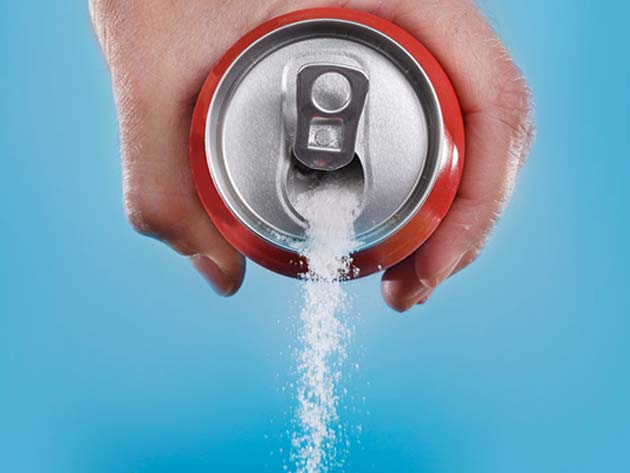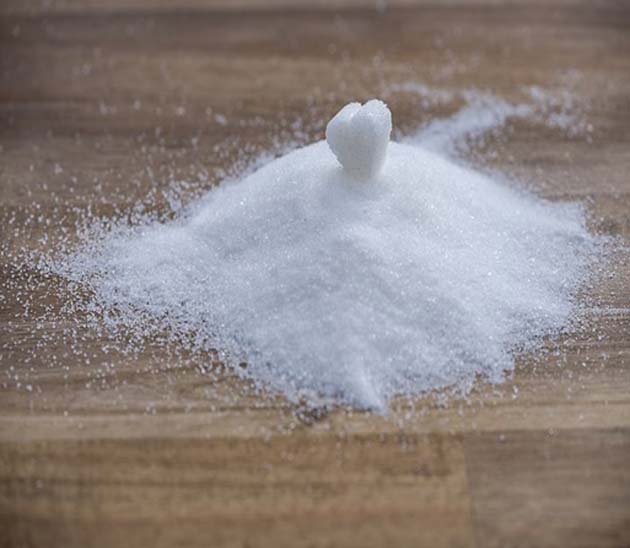Eating very sweet foods has been popularly linked to poor health and possible higher risks of death. Some researchers also assert that this behavior is linked to increased body fat and a chance of a range of diseases, including cancer. In addition, chronic sugar intake may enhance the risk of developing type II diabetes.
However, several types of beverages are also potential sources of sugar, known to be consumed in large quantities in western countries. Accordingly, some scientists think there may be a link between sugar-sweetened drinks and negative health events.
Sugary Drinks Related to Mortality Risk
A new study, released as part of the American Heart Association's (AHA) latest Lifestyle and Cardiometabolic Health Scientific Sessions, has assessed a large amount of data pertaining to mortality-related outcomes and sugar intake, as a result of consuming either foods or beverages.
This new review used existing data from a large-scale study of cardiovascular health metrics, in relation to lifestyle and behavioral choices.
The information was taken from approximately 18,000 participants recruited to the long-running Reasons for Geographic and Racial Differences in Stroke (REGARD). These subjects were all aged at least 45 years and filled out surveys on their dietary patterns, including the amount of sugar they consumed over a period of 7 years.
The analysis of this data resulted in findings that the participants who consumed the greatest amounts of sugary drinks were nearly twice as likely to be affected by coronary heart disease (CHD) compared to those who consumed the lowest amounts.

Consuming drinks with high sugar could be related to an increased risk of mortality from cardiovascular heart disease (CHD). (Source: Medscape)
On the other hand, no such association between CHD-related death and the amounts of sugary foods eaten was found. In addition, the effect of sugary drinks on death from CHD also appeared to be affected by socioeconomic status and body weight. The participants were not affected by relevant conditions such as cardiovascular disease or type II diabetes at the start of the study. Their sugary food or beverage intake was recorded using self-administered questionnaires.
Observations from the Study
This research, led by Dr. Jean Welsh from Emory University, found that just over 1400 of the participants died over the course of the study, with approximately 280 of these related to CHD.
The study also found that the risk of death due to any cause was also increased in those who consumed the most sugar-sweetened drinks. It was reported that the risk of all-cause death rose significantly with every 340 grams of beverage-derived sugar, but only for those with incomes under $74,000 a year.
In addition, the participants with a body mass index of 25 or more experienced a significantly higher risk of all-cause mortality, but not CHD-related mortality with increasing beverage intakes.
These findings appear to corroborate other research that have found links between sugar-sweetened drinks and disease, particularly cardiovascular conditions. For example, a previous study found that people who made up to 21% of their calorific intake from sugar-rich foods had a 38% greater risk of cardiovascular disease-related mortality compared to those who derived only 8% of their intake from the same sources.
Another review of the 2010 Global Burden of Diseases, Injuries and Risk Factors study found that up to 208,000 deaths could be attributed to sugary beverage intake. As much as 139,000 of these deaths were associated with diabetes, a maximum of 61,000 to cardiovascular disease and 8600 to various forms of cancer.

Stats show that sugary drinks, not foods, related to all-cause and coronary heart disease-related mortality. (Source: Pixabay)
Additionally, it should be noted that the beverages referred to in this study appeared not to be better sources of sugar compared to foods. For example, the highest quartile of sugar consumed as a result of beverage intake equated to just under 567g, whereas the corresponding quartile related to food intake was 578g. On the other hand, the lowest quartile of sugar associated with beverages was approximately 23g, whereas that associated with foods was 348g.
The researchers noted that there could be several explanations for this. They included the possibility that sugar consumed in liquid forms could take different metabolic pathways in the body compared to those included in solid forms. Alternatively, people who drank sugary drinks may have also eaten sugary foods, being unaware of the actual amount of sugar the beverages could deliver.
Highlights
This study appears to indicate that dietary sugar appears to increase mortality risks related to any source, and also to CHD, specifically. However, this association only seems to apply if the sugar comes from beverages (e.g., mass-produced soft drinks or juices) rather than foods.
On the other hand, this investigation was based on the analysis of data taken from a longitudinal study that combined qualitative and quantitative methods of information-gathering. This negatively impacts the ability to categorize the associations made as cause-effect relationships.
In addition, the REGARD study was set up to evaluate cardiovascular mortality among people of the Southeastern United States of Caucasian or African ethnicity. This makes it slightly-less globally representative compared to other studies conducted on the same subject. However, it remains another viable piece of evidence on the effect of sugar-sweetened drinks on human health.
Top Image: Beverages such as soft drinks or high-sugar juices may be related to higher risks of mortality than foods. (Source: Public Domain)
References
AHA, 2018, Scientific Sessions 2018, https://professional.heart.org/professional/EducationMeetings/MeetingsLi..., (accessed on 15 Apr 2018)
Melville NA, 2018, Sugary Drinks, but Not Foods, Linked to Increased Mortality, https://www.medscape.com/viewarticle/895063#vp_2, (accessed on 14 Apr 2018)
Q. Yang, et al. (2014) Added sugar intake and cardiovascular diseases mortality among us adults. JAMA Internal Medicine. 174:(4). pp.516-524
V. J. Howard, et al. (2005) The reasons for geographic and racial differences in stroke study: objectives and design. Neuroepidemiology. 25:(3). pp.135-143







No comment